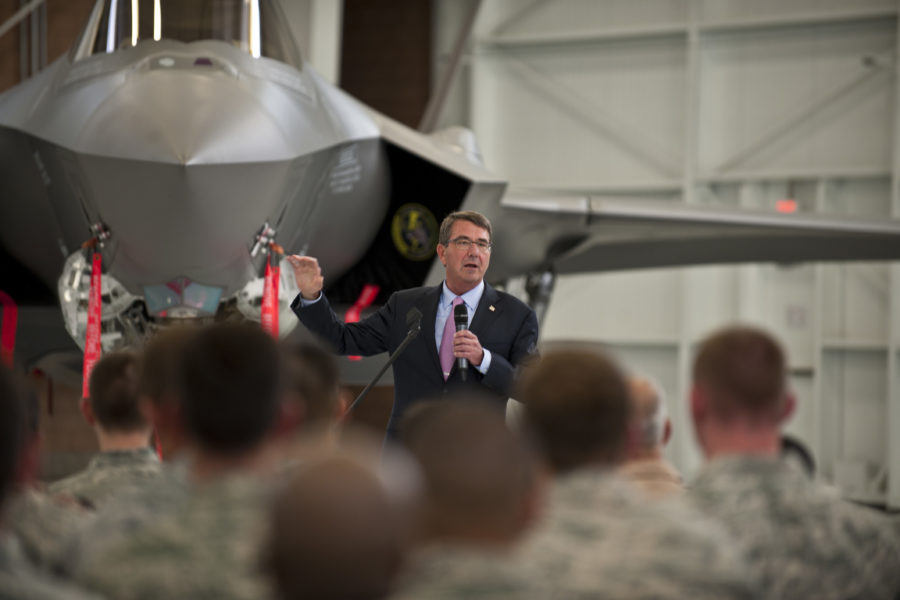Ashton Baldwin Carter, who served as the 25th Secretary of Defense from 2015 to 2017, during the presidency of Barack Obama, died Oct. 24 at the age of 68. Carter served in national security roles and held numerous academic research, teaching, and leadership positions.
During his tenure as Defense Secretary, Carter directed the anti-ISIS special operations and air campaign in the Middle East—”Operation Inherent Resolve”—which ultimately led to the defeat of ISIS in Iraq and Syria. He also opened combat jobs to women and permitted transgender individuals to serve in the U.S. military.
From 2011 to 2013, Carter was deputy secretary, charged with managing the department’s response to the Budget Control Act sequestrations and reform of the Pentagon’s export control system, which had stymied some commercial and many military exports. He also directed the U.S. military’s “shift to Asia,” which put greater emphasis on the Indo-Pacific and reapportioned U.S. forces accordingly.
From 2009 to 2011, Carter served as undersecretary of defense for acquisition, technology, and logistics. He counted as one of his signature accomplishments the provision of more than 1,000 Mine-Resistant Ambush Protected (MRAP) vehicles to U.S. troops, who had been taking heavy casualties in Iraq and Afghanistan from roadside bombs and improvised explosive devices (IEDs). He also oversaw the selection of the KC-46 in the KC-X aerial tanker competition and instituted the “Better Buying Power” acquisition reforms.
From 1993 to 1996, under President Bill Clinton, Carter served as assistant secretary of defense for international security policy, crafting nuclear policy, particularly as it applied to the former Soviet republics and North Korea; and working on other strategic issues. He oversaw the 1995 extension of the Nuclear Non-Proliferation Treaty, the 1996 Nuclear Test Ban Treaty, the Nunn-Lugar Cooperative Threat Reduction Program, and “Project Sapphire,” which removed nuclear weapons and fissile material from several former Soviet states.
Carter ordered the opening of all military jobs to women in 2015 after a three-year study, which determined in part that many military women were already serving in combat positions, but were not receiving commensurate pay, career recognition, command opportunities or appropriate decorations due to their non-combat specialty codes. The change permitted women to compete for special operations, fighter pilot, and other frontline combat positions.
In 2016, Carter lifted a ban on transgender personnel openly serving in the military, saying anyone who could meet the military’s standards “should be afforded the opportunity to compete to do so.”
Graduating summa cum laude from Yale with degrees in physics and medieval history, Carter worked in the Congressional Office of Technology, returning to the John F. Kennedy School of Government in 1984 to chair the International and Global Affairs faculty.
Carter did research on quarks and charmed particles at the Fermi National Accelerator Laboratory and the Brookhaven National Laboratory. He was a Rhodes scholar and received his doctorate in theoretical physics from the University of Oxford. He did postdoctoral research at Rockefeller University and the MIT Center for International Studies. He taught at Harvard University from 1984 to 1990.
He received five awards of the Defense Department Distinguished Public Service Medal, as well as the Chairman of the Joint Chiefs of Staff Joint Distinguished Civilian Service Medal and the Defense Intelligence Medal.
Carter wrote 11 books on ballistic missile basing and strategy, missile defenses, international security, and defense management.
At the time of his death, Carter was the director of the Belfer Center for Science and International Affairs at Harvard’s Kennedy School of Government, where he taught public policy.
